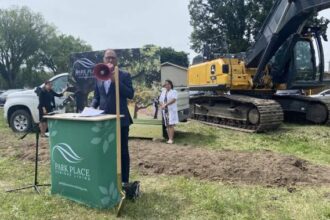Acrid smoke hung like a thick curtain over Mosaic Stadium this weekend, transforming what should have been a spirited clash between provincial rivals into an unprecedented scheduling dilemma for the Canadian Football League. The highly anticipated matchup between the Saskatchewan Roughriders and Calgary Stampeders was postponed as wildfire smoke from northern regions enveloped Regina, pushing air quality readings to dangerous levels.
“Player safety must always come first,” explained CFL Commissioner Randy Ambrosie in a statement released Saturday evening. “While we recognize the disappointment this causes for fans and both organizations, the health risks associated with competing under current conditions are simply too significant to ignore.”
Air quality index readings in Regina climbed above 200—well into the “very unhealthy” classification—prompting health authorities to advise against outdoor physical activities of any kind. Medical experts from both teams conducted extensive on-field assessments three hours before scheduled kickoff, ultimately determining conditions were unsuitable for professional athletic competition.
The postponement marks the first time in modern CFL history that environmental conditions related to wildfires have forced a game rescheduling. League officials, in consultation with both organizations, have tentatively rescheduled the contest for July 8th, though this remains contingent on improved air quality conditions.
For the Roughriders organization, the postponement creates logistical challenges beyond the playing field. “We had nearly 30,000 tickets sold for today’s game,” noted Roughriders President Craig Reynolds. “Our team is working diligently to ensure all ticketholders understand their options regarding refunds or attendance at the rescheduled date.”
The smoke infiltrating southern Saskatchewan originates from more than 140 active wildfires burning across northern regions of the province and neighboring territories. Forestry officials report that unusually dry spring conditions, combined with above-average temperatures, have created perfect conditions for wildfire propagation.
Environmental scientists at the University of Saskatchewan have been monitoring the situation closely. “What we’re witnessing represents part of a troubling pattern,” explained Dr. Elaine Wheaton, climate researcher at the university’s Global Institute for Water Security. “The frequency and intensity of wildfire seasons across Canada have increased substantially over the past decade, directly impacting not just remote communities but major population centers as well.”
For players preparing to compete, the postponement brought mixed emotions. “You prepare all week for game day, so mentally it’s challenging to suddenly hit pause,” said Roughriders quarterback Trevor Harris. “But breathing that air during our brief walkthrough was genuinely difficult. This is absolutely the right call for everyone involved.”
Both teams will now adjust their training schedules, with Calgary returning home earlier than planned and Saskatchewan modifying practices to indoor facilities until air quality improves. Medical staff from both organizations will continue monitoring player respiratory health, particularly for those with pre-existing conditions.
Climate researchers suggest this disruption may represent a new reality for outdoor athletics across North America. As wildfire seasons grow longer and more intense, sporting events from professional to amateur levels may face increasing schedule uncertainty during summer months.
As residents across Saskatchewan await clearer skies, questions emerge about how professional sports leagues will adapt to environmental challenges that once seemed rare but are becoming increasingly common: Will future CFL scheduling include built-in contingency dates for environmental disruptions? And perhaps more importantly, how will our most cherished outdoor traditions evolve in the face of a changing climate?










